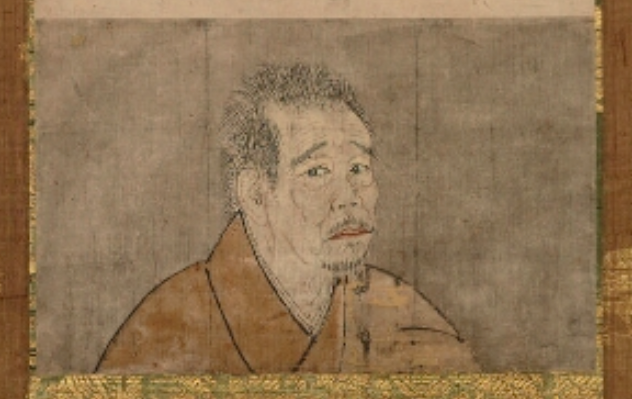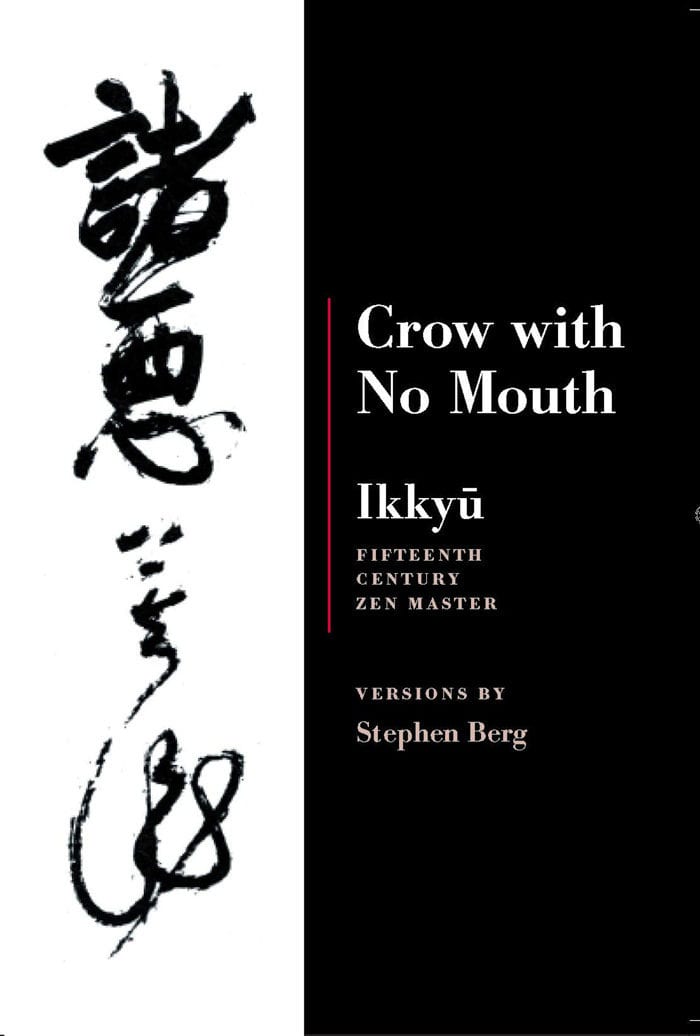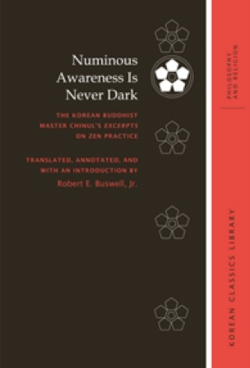Peace Isn't Luck: Then What is The Way?
"You say that there is no gradual progress, and yet Shakyamuni Buddha predicted my unsurpassed, perfect awakening. How can I get there?"

There are Zen teachers in the current dharma scene who assert that, "Awakening is an accident, and Zen (or zazen) makes you accident prone."
It's a cute sound bite. But, it's a sloppy use of language that has the effect – intended or not – of dumbing down the power of sudden awakening, sudden cultivation (see more on this below). It's also simply nonsense, symptomatic of a person using a single method, like zazen, and pasting it onto a Western worldview, rather than developing a deep appreciation and faith in the buddhadharma.
An accident is "...an event that happens by chance or that is without apparent or deliberate cause." There is, however, another way to look at awakening and the effects of training. Take the view of the great wild one, Ikkyu, who wrote:

Peace isn't luck. One of Shakyamuni Buddha's great insights was that he was not destined to live out the life he was born into; that training and transformation were possible. He could have chosen to live a life of privilege, but instead chose to train and become a Buddha – no accident. And so can we. In fact, with the arousing of the Way Seeking Mind, receiving instructions from good, knowledgeable friends, keeping oriented to the principle of training, and applying uncommon diligence (i.e., forging an indestructible blade), awakening is not an accident.
The teaching of all the Buddhas and Ancestors is that once a person arouses the Way Seeking Mind, Buddhahood is assured. BAM!
Pivotally, in The Lotus Sutra, the Buddha predicts unsurpassed, perfect awakening for bodhisattvas, arhats, and disciples after eons of training. Life after life. The Buddha's prediction for those who spend lifetimes on their couches scrolling the internet for transient dopamine hits is less clear.
This does not mean that a practitioner can control the timing of awakening. The "you of your face" won't "melt like a candle" on demand, but in response to mysterious and wondrous cause-and-effect. So it might not (i.e., it won't) happen when you want it to, or when you think you deserve it (like in the midst of a nasty-hard sesshin).
If you set yourself up as a Zen teacher, and rather than encouraging timeless training with hair on fire (because "peace isn't luck"), you tell people that awakening is an accident, then you deny causality and might just find yourself living out five-hundred lives as a wild fox (like old Baizhang). In your denial of causality, your students might think "right practice" is to take the attitude of the farmer who happened one day to scare a rabbit. The rabbit, in a mad dash to escape the farmer, ran headlong into a stump and died, providing the farmer with their dinner. Thereafter, the farmer went out into their field and stood by the stump waiting for another accident.
We do say that within the boiling cauldron of the training container, to be like a fool, like an idiot. But lazily hanging around waiting for a rabbit to "suicide-by-stump" is just dumb; a misuse of vital life energy for the Way.
Sudden or Gradual?
If awakening is assured, does it unfold suddenly or gradually? That's a question that's been kicking around in dharma circles for a good fifteen hundred years. The issue goes back to at least Bodhidharma, who taught that there are two entrances into the Buddha Way: principle (or essence, 理) and conduct (cultivation, 行).
The eminent Buddhist scholar, Robert E. Buswell, Jr., has summarized the great Korean master Chinul's work on the issue (who summarized the work of the great Chinese master Zongmi), here:

Four main approaches to awakening and cultivation are highlighted in this text:
- Gradual cultivation/gradual awakening: Cultivating in this approach is like climbing a tower; awakening is like seeing more and more the higher you climb.
- Gradual cultivation/sudden awakening: Cultivation here is like gradually chopping away at a tree, awakening is the moment when the tree finally falls.
- Sudden awakening/gradual cultivation: This is like the sun appearing suddenly at dawn (awakening), and then gradually evaporating the morning dew (cultivation). Buswell wrote, "The assertion here is that genuine religious training can only begin after an initial sudden awakening to the reality of the buddha-nature that is inherent in all living beings; for, only by being grounded in that initial sudden awakening would Zen practice be correctly oriented and thus able to lead to full enlightenment. Such a regimen would ensure that Zen practice would produce adepts who not only knew they were enlightened buddhas but could also act like them."
- Sudden awakening/sudden cultivation: This is compared to a mirror that naturally gleams (awakening) without needing to be wiped or polished (cultivation), or like a spool of thread sliced by a single strike of a sword (awakening) will cut through the entire spool instantly (cultivation).
The sudden/gradual dynamic also played out in the story of Huineng, the Sixth Ancestor, with his famous poetry contest with the head monk, Shenxui. The Fifth Ancestor, knowing that the illiterate Huineng had awakened, but reluctant to draw public attention to him, invited all the monks to express their understanding in verse. Whoever wrote the best verse would be the Sixth Ancestor! After sweating bullets, Shenxui wrote a poem that went:
This is the perspective of gradual cultivation, gradual awakening.
Huineng saw Shenxui's verse written on a wall in the monastery and immediately had someone write this verse in response (given that he was illiterate):
This is the perspective of sudden awakening, sudden cultivation.
More on Huineng's awakening and teaching here:

What, then, is effective practice? Simply put, although sudden and gradual are a matter of skillful means, from the essential perspective, as Huineng later taught as the Sixth Ancestor, "The Dharma is without sudden and gradual" (法無頓漸). When a person clearly sees, there is no sudden and no gradual, no coming and no going, no regressing and no advancing. We call that "sudden awakening, sudden cultivation."
The Sixth Ancestor also taught:
"No gradual progress."
Then what is the Way?
If there is no gradual progress, how can deluded people wake up?
Let's turn now to an old koan for a clear pointer to no-direction home:
Zhaozhou asked Nanquan, ”What is the Way?”
Zhaozhou here is a young monk, but must have heard that in the Zen Way there is no gradual progress. And, on the other hand, that peace isn't luck. So you can't blame him for wondering aloud about how a deluded young person like himself could become an old Buddha like his teacher, Nanquan. So he asked, in other words, "You say that there is no gradual progress, and yet Shakyamuni Buddha predicted my unsurpassed, perfect awakening. How can I get there?"
Nanquan said, ”Ordinary mind is the Way.”
"Ordinary mind" is 常心, where 常 is "timeless," "unceasing," or "permanent." And 常 is the "constancy" in the four characteristics of nirvana – constancy, bliss, self, and purity (Japanese, jo, raku, ga, jo). When constancy 常 is combined with 心 (mind) as a binomial, it means "ordinary mind." But this ordinary mind is at once the true mind. The timeless mind is the ordinary mind.
Yet, Nanquan is not saying that your confused, normal mind is the Way. Instead, seeing the true nature of your confused mind is the mind of constancy, bliss, self, and purity and that is the Way. Without that seeing, the ordinary mind is just dumb.
Zhaozhou asked, ”Is it possible to direct oneself towards it then?”
If this mind is all there is – timeless and without gradual progress – how can I get there?
Nanquan said, ”To intentionally try to go there directly is scheming.” Zhaozhou asked, ”If not intentionally trying, how can you know the Way?”
If there is no direction home (because, in truth, it is already the self), how can I get there? If it is already me, how can this be verified?
Nanquan said, ”The Way does not belong to knowing or not knowing. Knowing is delusion, not knowing is blankness. If you truly reach the Way of no intention, it’s like the great empty universe, a vast open thusness. How could you make right or wrong effort?”
How can one make effort? As if your hair were on fire! That's how – completely beyond right or wrong, just totally doing it. In the Way, "[...] all dharmas are perfect stillness. How could there be step-by-step practice?"
At these words, Zhaozhou had sudden awakening.
"At these words," hey! Wait a minute. Don't they say that Zen is beyond words?
By the way, the characters for "sudden awakening," 頓悟, are the same used by the Sixth Ancestor. What is usually rendered as "sudden," 頓, is also "to fall headlong into." In addition, in the koan text, after "At these words," there is a 下 (or "let down") before sudden, 頓, so a literal translation of the sentence would read, "At these words, [Zhaozhou] dropped headlong into awakening [Japanese, satori]."
Likewise, Wumen's comment for this koan goes like this:
Nanchuan was asked by Zhaozhou and straight away crumbled the ice and cleared away the obstructions. Zhaozhou, even if awakened, still had to go on for thirty years to get it for the first time.
Nanchuan in his crumbling and clearing, and Zhaozhou in his headlong dropping, suddenly saw together. Then that old trouble-maker Wumen added the bit about Zhaozhou needing to train for thirty more years in order to get it for the first time.
Is that sudden or gradual?
It's like Ikkyu said:
Thank you for reading.
Coming soon for paid subscribers:
"What To Do When It Comes At You All At Once"
The comment/question section is open for paid subscribers.

